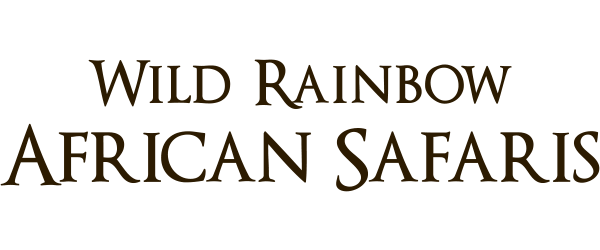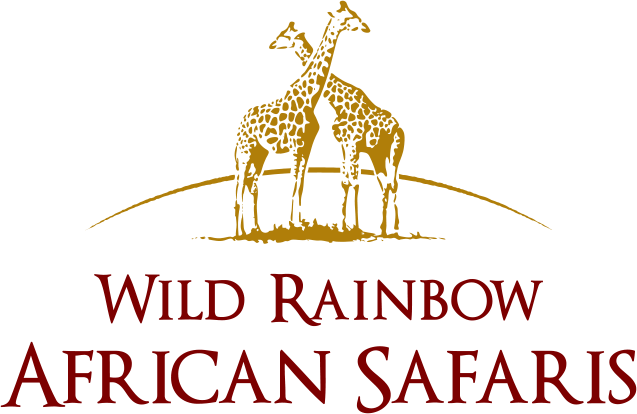Trip Safety
Planning travel mid-pandemic is a bit confusing, overwhelming and frustrating, to say the least. And if you’re planning an excursion outside of the country, to places like Africa, it can feel downright scary! That’s why we’re here to help!
If you’ve been dreaming of an African Safari but aren’t sure if it’s safe to plan your travels yet, then review the updates below so you know what’s going on with travel to and from Africa during COVID-19.
Updated 2022/02/28

Join Us for an Unforgettable Adventure
Ultimately, the choice to take a trip right now is a personal one involving many factors, from individual risk to personal comfort levels, to how cases are trending where you live and where you intend to travel.
If a break from coronavirus-induced cabin fever is what you need then contact us now to begin planning your 2022 safari.
Flying to Africa or Travelling from Africa Information
Most international commercial airlines require passengers to produce a certificate of a negative COVID-19 PCR test that has been conducted within 72 hours of departure. The same may be required when arriving at any transit airport or back in your home country. Many of our trusted suppliers throughout Africa are able to arrange in-lodge/hotel COVID-19 tests or transfer you safely to an authorized testing facility. We are here to help you make your travels as seamless as possible.
Travelling to Africa After Getting the COVID-19 Vaccine
Now that a COVID-19 vaccine is readily available, many potential travelers are asking if they’ll be required to undergo COVID-19 tests and follow the current health and safety protocols when travelling to Africa after getting the vaccine. The answer remains unclear, as experts still need to learn more about the protection that a COVID-19 vaccine provides under real-life conditions. We are keeping abreast of developments in travelling after being vaccinated and will provide updates when we have clear and conclusive information.
Botswana
For up to date information, please click here:
UK Air Bridge Approved Since 12 December 2020
Botswana started a phased reopening of international borders from 9 November 2020.
Open for international travel via:
- Airports
- Land borders
Health screening & COVID-19 protocols on arrival
- Fully vaccinated travellers are not required to present a negative COVID-19 PCR test result on arrival. Presentation of a valid COVID-19 vaccination certificate is required. ‘Fully vaccinated’ means having received both doses of a two-dose COVID-19 vaccine, or one dose of the Johnson & Johnson vaccine. If a traveller has received any one of the two vaccines and is overdue for booster shots, that traveller is no longer considered to be fully vaccinated until a booster shot is taken.
- Travellers who are not fully vaccinated must present a printed original test certificate of a negative COVID-19 PCR test result not older than 72 hours from time of testing, and receive a COVID-19 vaccination at their port of entry.
- Undergo health screening for COVID-19 symptoms.
- Complete a traveler locator form (handed out on the airplane or on arrival) with accurate contact information while in Botswana so that the local Health Authority can contact you, if necessary, within 14 days.
Mandatory quarantine
- Not required.
Health screening & COVID-19 protocols on departure
All travellers departing Botswana must present a negative COVID-19 test certificate (paper version only), irrespective of their destination. Tests must be conducted within 72 hours of departure at any of the country’s testing facilities, or:
- Option 1: Arrange in-camp testing – a qualified practitioner is flown to your camp or lodge to conduct a PCR test. This has to be booked 36 hours in advance, online bookings are essential, and a minimum of two guests is required. Guests are liable for all costs.
- Option 2: Do the PCR test in Maun, Kasane or Gabarone Airports – bookings are essential. Your Africa Safari Expert can arrange this for you. Test results are available within 24 hours.
Kenya
For up to date information, please click here:
Approved & Recognised User of the World Travel & Tourism Council’s (WTTC) Safety Stamp
On 6 July 2020, Kenya announced that local air travel will resume operations from 15 July 2020 and that international travel will resume from 1 August 2020.
Open for international travel via:
- Airports
- Land borders
Health screening & COVID-19 protocols on arrival
- All arriving passengers older than 18 years are required to have a COVID-19 vaccination certificate, except travellers with medical conditions preluding vaccination (required to provide a letter from a recognised medical practitioner detailing the medical reasons), and travellers who have recovered from an active COVID-19 infection or received convalescent plasma in the preceding 90 days (required to provide a letter from a recognised medical practitioner that shows recovery from an active infection in the preceding 90 days).
- All visitors older than 5 years are required to produce a negative result for a valid PCR test conducted within 72 hours before departure for Kenya.
- There will be no paper verification of COVID-19 test results and vaccination certificates upon arrival in Kenya. All travellers must upload both documents to the Global Haven platform before boarding an airplane.
- All passengers (including those in transit) must complete the Travellers Health Surveillance Form once you have your seat number from the airline. This will provide you with a QR code required for entry. We recommend you also print out a copy of the form in advance to expedite the process on arrival.
- All travellers are expected to self-monitor and report daily via the ‘jitenge’ platform for the first 14 days in Kenya.
- Travellers originating from or transiting through South Africa, Botswana, Zimbabwe, Malawi, Eswatini, Lesotho, Namibia, Mozambique, Zambia, Malawi, Ghana and Nigeria within the previous 14 days will undergo a free Rapid Antigen test on arrival. Those testing positive must take a PCR test, then isolate awaiting results. If the PCR test is positive, passengers are required to isolate for 10 days at a government approved isolation facility at their own cost, and undergo a repeat PCR test on day 7.
Mandatory quarantine
- A random Antigen Test may be conducted by port health officers, depending on the risk evaluation of the country of origin. Those testing positive will be required to isolate at a government designated facility for 10 days (at own cost), and must take a PCR test before being discharged.
- All passengers with flu-like symptoms at the point of entry, or those who develop clinical symptoms within 14 days of arrival shall be placed
into quarantine and tested for COVID-19 at a government testing facility.
Health screening & COVID-19 protocols on departure
- All travellers are required to have a COVID-19 vaccination certificate.
- PCR tests are not required unless specified by the airline or final destination.
Namibia
For up to date information, please click here:
UK Air Bridge Approved Since 12 December 2020
Namibia announced new implementation protocols that will guide the country’s international tourism revival initiative. These protocols came into effect from 1 September 2020.
As of 1 August 2021, Namibia has lifted all travel restrictions between regions.
Open for international travel via:
- Airports
- Land borders, except MataMata.
Health screening & COVID-19 protocols on arrival
- Before arriving in Namibia, all travellers older than 5 years must take a PCR test within 72 hours from when the test sample was taken and upload it onto the Trusted Travel (TT) platform. Visitors will also be required to present the negative test certificate upon arrival in Namibia. Travellers with results from non-TT compliant labs must upload results to the Global Haven system. From 15 January 2022, only test results from the Trusted Travel platform or results that have been verified on the Global Haven system will be valid for entry. See a guide on how to use the Trusted Travel platform.
- All travellers must complete the COVID-19 Surveillance Form before departing to Namibia.
- Travellers are recommended to carry hard copies of all the above documents.
- Undergo health screening and temperature testing.
- Complete a short health questionnaire.
Mandatory quarantine
- Not required, unless a traveller’s PCR test is older than 72 hours.
- If PCR test is older than 72 hours and travellers are not in possession of a de-isolation certificate, they will be required to take a PCR test at the port of entry at their own cost, and will be quarantined at own cost until the a negative result is provided.
Health screening & COVID-19 protocols on departure
- A negative COVID-19 test certificate, conducted within 48 hours of departing Namibia, if your country of origin requires it.
Countries allowed to travel to the destination
- All
Rwanda
For up to date information, please click here:
Approved & Recognised User of the World Travel & Tourism Council’s (WTTC) Safety Stamp
Tourism activities across the country resumed from 17 June 2020 and Rwanda’s airports reopened for scheduled commercial flights on 1 August 2020. Kigali International Airport is a member of the Airport Health Accreditation Programme by Airports Council International (ACI).
As of 16 December 2021, movement is prohibited between 00:00 and 04:00. Tourism still continues in line with COVID-19 regulations.
Open for international travel via:
- Airports
Countries allowed to travel to the destination
- All
Health screening & COVID-19 protocols on arrival
- All arriving passengers (except accompanied children younger than 5 years) must present a negative result for a PCR test taken within 72 hours prior to first departure.
- Complete the Passenger Locator Form and upload your COVID-19 test certificate via www.rbc.gov.rw/travel prior to arrival. On completion of the form, you will be provided with a Unique Health Code (UHC) which you must present on arrival. Note: this can only be submitted within 72 hours before your departure.
- Complete a short health questionnaire on arrival.
- All arriving travellers will be required to take a PCR test on arrival at a cost if USD 70. An additional test will be taken on day 3 at a designated testing site.
- All tourists older than 5 years who are visiting national parks in Rwanda must present a negative COVID-19 test result taken within 24 hours of arrival. A PCR test is required for those visiting primates at Volcanoes, Nyungwe and Gishwati-Mukura National Parks. Rapid Antigen tests are required for those visiting Akagera National Park, and all other activities.
- All travellers transiting or connecting and not leaving the airport for less than 12 hours will not be required to take a second COVID test.
Mandatory quarantine
- All travellers arriving or transiting for more than 12 hours – except those visiting any of Rwanda’s national parks – must undergo a COVID-19 test on arrival (USD 70 per traveller). An additional PCR test is then required on day 3.
Health screening & COVID-19 protocols on departure
- Travellers older than 5 years are required to present a negative result for a PCR test taken within 72 hours before departure. Allow 48 hours for results from when the sample is collected.
- Passengers are encouraged to book and pay for tests online at least 2 days prior to departure.
South Africa
For up to date information, please click here:
Cape Town is an Approved & Recognised User of the World Travel & Tourism Council’s (WTTC) Safety Stamp
South Africa announced on 16 September 2020 that the country’s borders will reopen for tourism on 1 October 2020.
OR Tambo, King Shaka and Cape Town airports are members of the Airport Health Accreditation Programme by Airports Council International (ACI).
Open for international travel via:
- Airports
- Land borders (partially)
Health screening & COVID-19 protocols on arrival
- Download, print and complete the Traveller Health Questionnaire (Entry) not more than 2 days before arrival. The same applies when leaving South Africa.
- All travellers older than 5 years are required to present a valid, printed certificate of a negative COVID-19 PCR test taken within 72 hours prior to departure. The test must be conducted by a certified medical practitioner and the certificate must have the name and signature of the practitioner who conducted the test.
- Undergo screening for any COVID-19 symptoms and/or for contact with people who have been infected with the virus.
- Travellers who recently recovered from COVID-19 may be requested to present a letter of exemption – see more details.
Mandatory quarantine
Not required unless:
- Arriving passengers fail to present a valid and negative COVID-19 PCR test. This will require a 10-day quarantine at own cost.
- Travellers display any symptoms of COVID-19 or have been in contact with an infected person. A mandatory COVID-19 test will be required at their own cost. If this test result is positive, travellers will be subjected to a 10-day quarantine at a designated site, at their own cost.
Health screening & COVID-19 protocols on departure
- Download, print and complete the Traveller Health Questionnaire (Exit) not more than 2 days before departure.
Countries allowed to travel to the destination
- All
Tanzania
For up to date information, please click here:
Approved & Recognised User of the World Travel & Tourism Council’s (WTTC) Safety Stamp
The government of Tanzania announced on 18 May 2020 that it will lift the ban on international flights arriving and departing from the country.
Open for international travel via:
- Airports
- Land borders
Countries allowed to travel to the destination
- All
Health screening & COVID-19 protocols on arrival
- All travellers (including children) are required to complete a Traveller’s Health Surveillance Form, to be submitted within 24 hours before arrival in Tanzania. Upon submission, you will receive a Unique Health Code that will be requested during primary screening on arrival.
- All travellers older than 5 years must present a negative certificate for a PCR COVID-19 test taken within 96 hours of arrival in Tanzania.
- Travellers who were infected and recovered from COVID-19 are required to submit a proof of recovering from the disease, obtained from Authorised Medical personnel upon arrival in Tanzania.
- Undergo enhanced screening for COVID-19 and complete a health form.
- All travellers who have been in these countries in the preceding 14 days will be required to take Rapid Antigen Tests (USD 10 per traveller) at their points of entry. Travellers are advised to pay for the test online to avoid unnecessary queues on arrival. Payment can be done via an automatically generated control number that’s obtained after completing the online Traveller’s Health Surveillance Form.
Mandatory quarantine
- Not required unless a traveller tests positive on arrival – isolation for 14 days is then required at an approved hotel, or until they test negative (RT-PCR test).
Health screening & COVID-19 protocols on departure
- All departing travellers must adhere to COVID-19 requirements of their country of destination or conveyance to be used.
Uganda
For up to date information, please click here:
Uganda released a tentative phased reopening schedule for all its land borders and the resumption of international passenger flights, effective 1 October 2020.
Open for international travel via:
- Airports
- Land borders
Countries allowed to travel to the destination
- All
Health screening & COVID-19 protocols on arrival
- Provide a negative result for a COVID-19 PCR test taken within 72 hours from the time of sample collection. Children younger than 5 years are exempt when accompanying parents arrive with a negative test certificate. COVID test certificates must indicate ‘travel’ as the intended purpose of the tests.
- All arriving passengers (except children under 5 years) at Entebbe International Airport are required to undergo a COVID-19 test at a designated testing facility at their own cost (USD 30 per test). Tests must be registered and paid for online in advance.
- Undergo temperature checks and health screening on arrival.
- Wear masks, maintain a social distance of 1.5 metres (5 feet) where possible, and practice good personal hygiene.
Mandatory quarantine
- Not required, unless you test positive on arrival.
- Passengers who test positive, but are asymptomatic or show mild symptoms, will be permitted to isolate in their hotels. Others will be transferred to a public or private treatment facility where they will be monitored for 7 days and discharged after a negative test. Passengers opting for a private hospital must cover the associated costs.
Health screening & COVID-19 protocols on departure
- All travellers (except children under 5 years) must provide a negative result for a COVID-19 PCR test taken within 72 hours from the time of sample collection.
Zambia
For up to date information, please click here:
Zambia is open to foreign nationals and issuing visitor visas upon entry into the country. Depending on your nationality, travellers can arrive without a visa, obtain a visa on arrival, or apply for an e-visa before travelling to Zambia – visit the Zambia Department of Immigration website for more info. Limited domestic flight schedules are operating twice-weekly between Kenneth Kaunda International Airport and Mfuwe International Airport, and between Kenneth Kaunda and Harry Mwanga Nkumbula International Airport in Livingstone.
Open for international travel via:
- Airports
- Land borders
Health screening & COVID-19 protocols on arrival
- All travellers are required to produce a negative result for a COVID-19 PCR test taken no more than 72 hours prior to departure.
- Complete a Traveller Health Questionnaire from the Ministry of Health on board the flight before landing in Zambia.
- Undergo temperature and symptom screening.
Mandatory quarantine
- Not required.
Health screening & COVID-19 protocols on departure
- Travellers will be screened and must meet all the COVID-19 entry requirements of the destination or transit country.
Zimbabwe
For up to date information, please click here:
Zimbabwe announced the reopening of the country’s local tourism sector on 3 September 2020. Domestic flights resumed on 21 September 2020 with Air Zimbabwe and Fastjet, in advance of 1 October 2020: the reopening date of Zimbabwe’s international airports.
As of 1 February 2022, the government instituted a curfew from 00:00 to 05:30. Inter-city and inter-provincial holiday travel, as well as visiting national parks and designated tourism facilities are allowed, but will be bound by the country’s curfew hours. Visitors who are travelling between destinations are required to provide documentation of bookings at national parks and other designated tourism facilities.
Open for international travel via:
- Airports
- Land borders (Victoria Falls and Kazungula for fully vaccinated travellers only)
Health screening & COVID-19 protocols on arrival
- Present a negative COVID-19 PCR test certificate, obtained from a recognised facility within 48 hours of departure for Zimbabwe.
- Undergo health screening and temperature testing.
- Social distancing, hand sanitisation and the wearing of masks are mandatory.
- All travellers older than 18 years who arrive via the Kazungula and Victoria Falls land borders must produce proof of COVID-19 vaccinations, as well as negative PCR test results no older than 48 hours. Children under 18 years are only required to have negative PCR test certificates. Children younger than 5 years do not require PCR test certificates.
Mandatory quarantine
- Not required.
For 17 years we have successfully navigated various crises and global disruptions, and are committed to creating once in a lifetime trips while supporting conservation, communities and sustainability in Africa, now more than ever. Health and safety protocols are excellent throughout the continent: sanitizer stations, temperature checks, social distancing and the wearing of masks are standard practices. But the real beauty of Africa lies in its remote safari destinations, far away from any crowds.
If you feel ready and comfortable, Africa is ready for you. Get in touch with us to help tailor-make a trip that’s right for you!
Check back for updates! And feel free to contact us directly if you want to book your next trip, but have questions first.
Information credit: go2africa.com
“Words are not adequate to convey my deep appreciation for Jody and how attentive she was through out my trip. Because of Jody my dream vacation went “beyond my wildest dreams.”
Monica G., Asheville, NC








